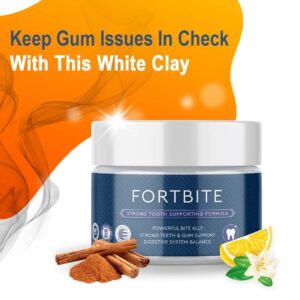Ensure the longevity of your family’s teeth for a lifetime of smiles
Your teeth are ideally suited to assist you in doing daily activities including eating, speaking, and expressing your feelings through your facial expressions. Visiting the dentist every six months is crucial for maintaining your family’s oral health and ensuring that your family’s teeth last a lifetime; otherwise, you risk developing oral health problems that could damage both the function of your teeth and the health of your entire body.
Even though social segregation laws have prevented thousands of families from receiving dental care, you can safeguard your family’s oral health at home by making a few small changes to your daily routine. That way, your family’s teeth will be in good shape when you can schedule an appointment with Dr. Lang for your next evaluation. Here are 10 methods for maintaining your family’s oral health without access to a dentist.
Floss your teeth properly
Maintaining your oral health at home requires brushing your teeth for two minutes at least twice a day, but how you do it is just as important. Use a soft-bristled or electronic toothbrush to avoid damaging your tooth enamel because brushing your teeth too vigorously can wear down your enamel over time and cause problems like tooth sensitivity.
Using fluoride toothpaste that prevents cavities and strengthens teeth, you and your family should brush your teeth as well as your tongue, which, like your teeth, accumulates a layer of plaque that has to be removed.

Treat brushing and flossing equally
By breaking up the plaque that builds up at your gumline and cleaning the sides of your teeth, flossing accomplishes tasks that your toothbrush is unable to do. If the plaque in these locations isn’t cleaned, you can get cavities or gum disease, which, despite frequently being painless, can cause tooth loss. Because of this, flossing is just as crucial to your dental health as brushing your teeth. As a result, your family should make a commitment to floss at least once each day.
Maintain a strict oral hygiene regimen
Your overall health is affected by your oral health, which affects more than just your mouth. In the short and long term, having a bad mouth can cause a variety of issues throughout your body, including immune system deterioration, infections, and an increased risk of heart disease, stroke, and other illnesses.
On the other side, keeping your mouth healthy can boost your immune system and keep you healthy all year round. Therefore, avoid skipping or rushing through your oral hygiene routine because you’re in a rush or exhausted at the end of the day; by making sure you and your children take just a few minutes to perform a thorough job, you can ensure that your entire family stays healthy in the long run.
Select your mouthwash carefully
Make sure to pick a mouthwash that fights cavities or gingivitis and also freshens your breath in order to boost your health. Consider switching to a total-care mouthwash if you don’t have access to dental care. By removing harmful bacteria from your mouth, strengthening your teeth, avoiding cavities, and renewing your enamel, this sort of mouthwash takes care of all the bases. The ADA Seal of Acceptance is placed on mouthwashes that have been shown to improve oral health; you can also see the list of ADA-approved mouthwashes online.
Adhere to a balanced diet
Sugary and starchy foods, which the bacteria in your mouth readily break down into sugars, are bad for your teeth when consumed on a regular basis because they feed the bacteria in your mouth, which produce acid that eats away at your enamel in the process. Acidic and sugary drinks are also detrimental to your teeth for this reason.
Limiting these meals and beverages enhances the overall oral health of your family, which is crucial when you don’t have access to dental care. Instead, make an effort to consume a balanced diet rich in whole grains, dairy products, lean proteins, and lots of fruits and vegetables. This lessens the damaging effects of sugar on your teeth and gives your body the vitamins and minerals it needs to develop strong, healthy teeth and bones.
Consume fewer snacks and a lot more water
The likelihood that you’ll develop cavities rises if you consume a lot of small snacks or sweet beverages throughout the day, which provides the bacteria in your mouth with an unlimited smorgasbord of food. It’s not necessary for your family to eat less; instead, having a few larger snacks rather than many smaller ones and sipping water in between meals can help your family’s dental health by allowing the mouth’s acidity levels to recover to normal.

Begin a regular exercise regimen
Exercise benefits your general health, but there is growing evidence that it also benefits your oral health. Studies have shown that people who are physically active have a lower risk of developing periodontitis; given that both periodontitis and being overweight increase your risk of heart attack and stroke, finding a regular exercise routine that works for you can be beneficial for both your overall health and oral health. You may even schedule family workout sessions during days off from school!
Make an effort to break bad habits that affect your dental health
Any use of tobacco can be harmful to your oral health; it makes you more susceptible to gum disease, hinders healing, colors your teeth permanently, and raises your risk of oral cancer. Sharing food and beverages with your children can potentially pass on hazardous oral bacteria, so maintaining good dental health for the entire family is crucial.
Since you don’t have much access to dental treatment, it could be a good time to quit smoking in order to protect your oral health. If you grind your teeth at night, which is not a conscious behavior, you may want to break the practice to ease jaw pain and avoid dental problems. Night guards can help.
Treat your teeth gently
Teeth are brittle but robust, so you should only use them for the tasks they were designed for. You run the danger of cracking, shattering, or chipping your teeth when you use them to open packages, crack nuts, or bite down on the ice. This may be extremely painful and frequently necessitates a trip to the emergency dentist. Even if you don’t experience a dental emergency, these activities will gradually wear down your teeth, affecting how they look and possibly necessitating further dental work.
Make a commitment to healthy practices to prevent more degradation from occurring
If you know you have a cavity but can’t receive quick treatment, make a commitment to developing good habits to stop the decay from getting worse. Inattention to your dental health can make a cavity worse and increase your risk of needing a root canal instead of a simple filling. Until you can have a filling, spend money on high-quality toothpaste and mouthwash, follow a strict dental hygiene regimen, and stop unhealthy behaviors to prevent further damage to your teeth.
Even though you might not currently have access to dental treatment, you can take efforts to enhance your oral hygiene so that Dr. Lang can give you a clean bill of health when you next visit him. You might even find that enhancing your oral health also enhances your general health, making you feel better all year round.
